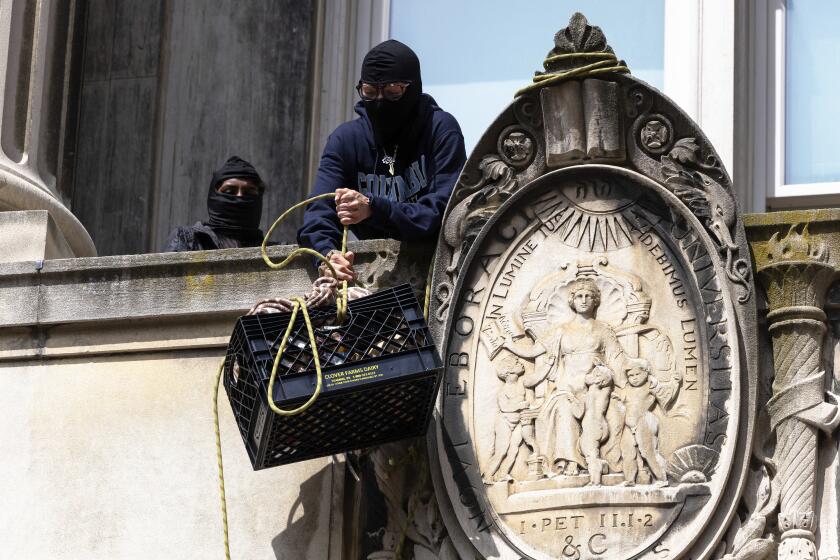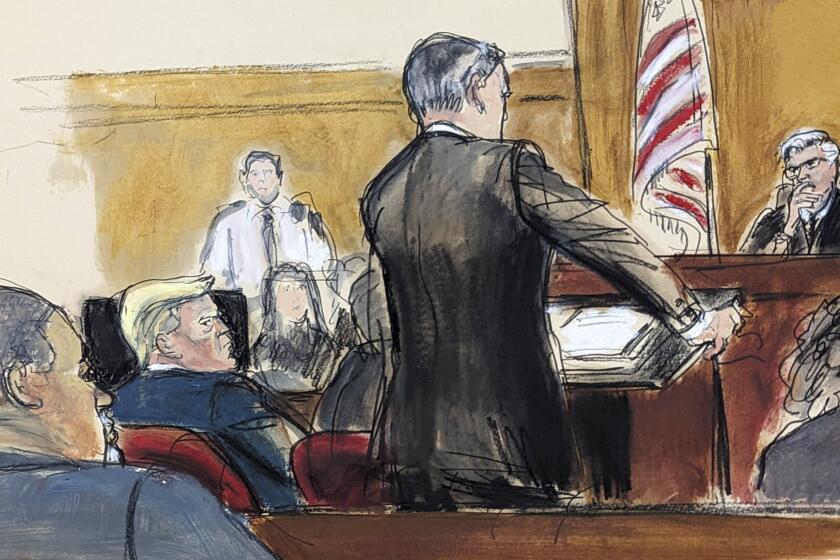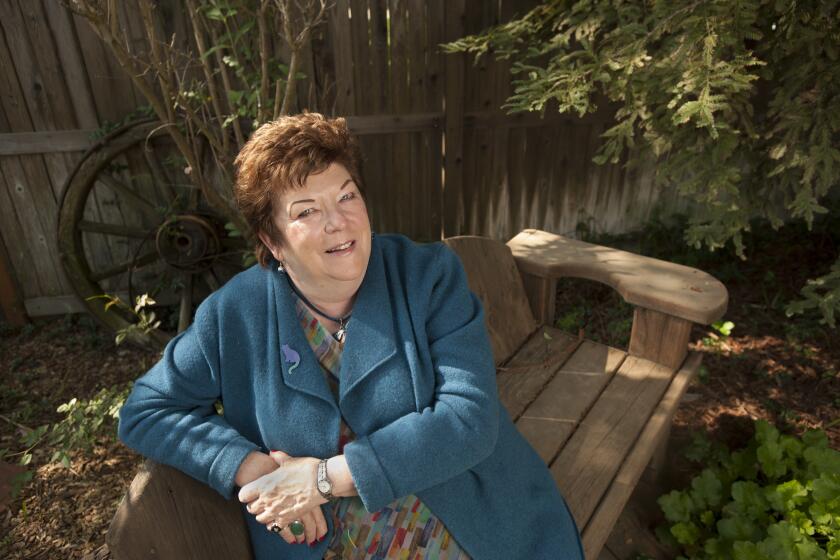Judge rejects motion to put Bruce Lisker back in prison
A federal judge on Friday rejected an attempt by state lawyers to send back to prison a man whose 1985 murder conviction was overturned last year.
The ruling by U.S. District Judge Virginia A. Phillips means that Bruce Lisker, who spent 26 years behind bars, remains a free man.
“I’m relieved,” said Lisker, who had been accused of killing his 66-year-old mother. “Justice has won for another day.”
The state attorney general’s office filed a motion last month seeking to have Lisker sent back to prison on a technicality, citing a U.S. 9th Circuit Court of Appeals ruling in another case that said inmates cannot file “untimely” petitions for release even if they can prove they are innocent.
Lisker, now 45, had missed a statutory deadline in which to file his petition but was allowed to pursue his wrongful conviction claims because he met an “actual innocence” exception, Phillips ruled in August 2009. The recent 9th Circuit ruling said there is no such exception.
In her 15-page ruling Friday, Phillips said that because state lawyers failed to appeal her ruling last year when they had an opportunity, they were precluded from reopening the case now.
She called their motion “fatally flawed” and unsupported by case law.
A spokeswoman for Atty. Gen. Jerry Brown said lawyers were evaluating Phillips’ ruling and have made no decision about whether to appeal it.
Even from the outset, the attorney general’s commitment to the motion had seemed uncertain. Hours after The Times reported that the motion had been filed, a high-ranking official in the office said Brown was reconsidering whether to withdraw it.
A hearing on the motion was scheduled for later this month, but after reviewing the papers filed from both the state and Lisker’s attorneys, Phillips said there was no need.
Phillips said reinstating Lisker’s “unconstitutional conviction” would undermine the state’s criminal justice system. Quoting from a previous appellate decision, she said, “It is … not only the defendant who suffers the consequences when a fair trial is denied, but the justice system itself.”
Lisker’s conviction was overturned last year after Phillips found that he had been convicted on “false evidence” and that his original attorney did not adequately represent him.
The judge’s findings mirrored those of a 2005 Times investigation that raised questions about key elements of the prosecution’s case against Lisker and exposed the Los Angeles Police Department’s murder investigation as sloppy and incomplete.
State lawyers — who have argued that Lisker is guilty — decided not to appeal Phillips’ ruling overturning his conviction. Instead they left it to the L.A. County district attorney’s office to retry him for his mother’s murder. Prosecutors eventually dismissed their case against Lisker, citing insufficient evidence.
Lisker’s legal saga began March 10, 1983, when he said he found his mother, Dorka, badly beaten and stabbed in the family’s home in Sherman Oaks and called paramedics for help.
Detectives were immediately suspicious of Lisker, a frizzy-haired 17-year-old with a history of drug abuse and fighting with his mother. His relationship with his parents had deteriorated to the point that they were paying for him to live in a nearby studio apartment.
But the evidence prosecutors used to implicate him in the crime has since been seriously undermined or proved false.
More to Read
Get the L.A. Times Politics newsletter
Deeply reported insights into legislation, politics and policy from Sacramento, Washington and beyond. In your inbox three times per week.
You may occasionally receive promotional content from the Los Angeles Times.






